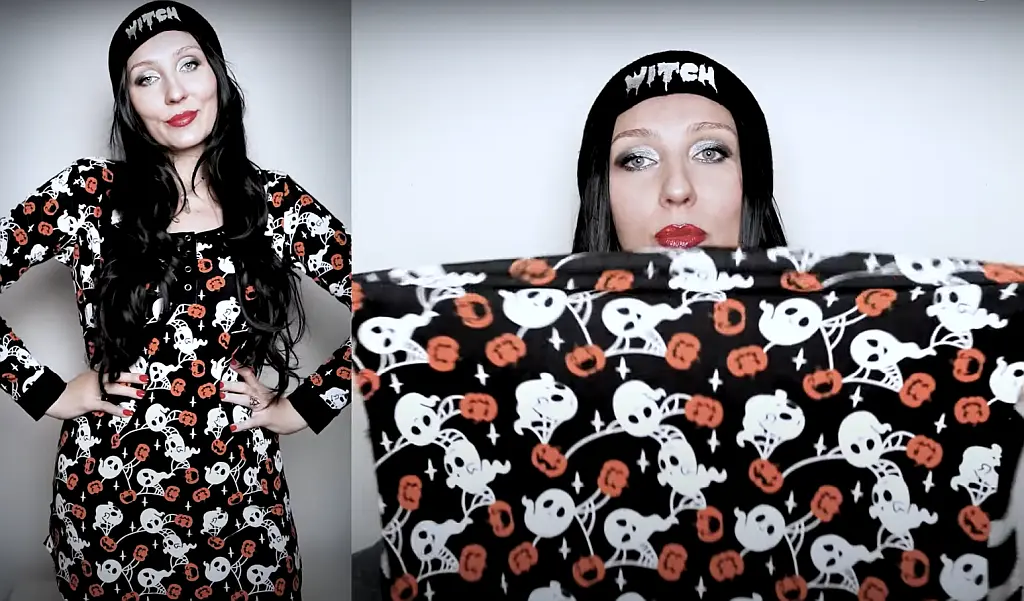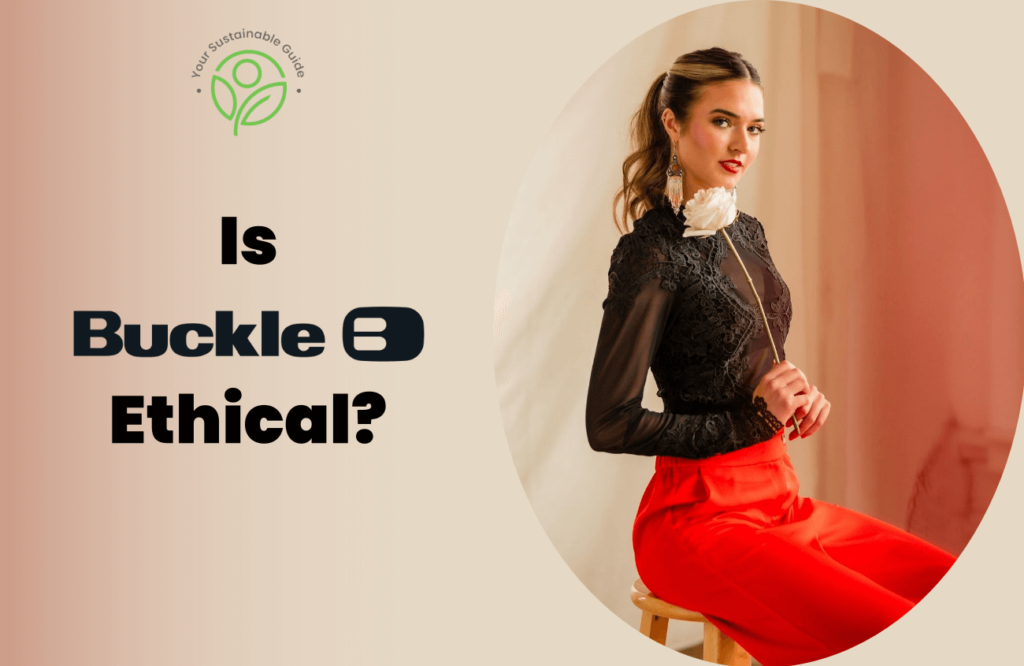Founded in 2010, Killstar is a lifestyle brand that connects you with ancient goth through its merchandise. Offering alternative apparel and spooky home accessories, it gives you access to dark and edgy fashion and embraces the raw emotional power of the gothic pagan culture. But as the company is hell-bent on awakening the spirit of the medieval ages, is it being compassionate towards nature? Is it treating its factory workers in an ethical way? Or is Killstar just another fast fashion brand?
Killstar’s garments might represent the mysterious witchy era, but it never fails to catch on to the latest fashion fads. It neither thinks much about supply chain ethics nor tries to reduce its carbon footprint. To know Killstar better, let’s evaluate its manufacturing processes, sustainability targets, and ethical initiatives.

Is Killstar Fast Fashion?
Yes, Killstar is fast fashion. The alternative clothing brand primarily targets Gen Z and people who are into the goth culture. It solely uses unsustainable materials that negatively affect the planet when discarded. Plus, its products are manufactured in untraceable Asian factories.
While its garments are not exactly priced too cheap, the stationery and accessories are quite budget-friendly. Besides, its website is home to thousands of merchandise for men and women, including soft furnishings and home accessories. And let’s not forget, Killstar hops on to the latest dark punk fads as soon as they are shown on the runways or worn by celebs. All these practices clearly reflect its implementation of the fast fashion business model.

Is Killstar Ethical?
No, Killstar is not ethical. From the get-go, Killstar gives some major red flags enough to rate it poor on the ethical scale. Its products are designed in-house in the UK, but the brand doesn’t have its own production units. While it promises to never partner with sweatshops and carefully select its factories after in-person visits, there is no evidence to back this statement.
Labor Practices
Killstar doesn’t share its suppliers’ list, labor rights policies or supply chain working conditions on its website. It also does not provide details on how it picks its manufacturers or if it conducts regular audits to check the factory conditions. These aspects are vital to assess a brand’s ethical standpoint, but the label doesn’t seem to bother.
Moreover, Killstar doesn’t have a Vendor’s Code of Conduct specifically laid out to address labor rights issues like reasonable working hours, no discrimination, no forced labor, minimum wages, etc. It simply published a generic ‘Terms & Conditions’ page where a section mentions ethically treating its supply chain workers. And that’s it! The label is unable to prove the authenticity of such claims. Adding to the concern, none of its factories are Fair Trade Certified.
To avoid any factory disaster, Killstar has not signed any agreement ensuring the safety and insurance of its suppliers’ labor. Or if it has done so, there’s no evidence to support it. Recognizing labor issues and taking a strong stand to avoid them is important for all companies, given the level of workers’ exploitation taking place in the fashion industry. Unfortunately, like most fast fashion brands, Killstar dusts off this responsibility as well.
Sourcing Practices
Killstar’s manufacturing is outsourced to cheap-labor Asian countries like China. The company does claim to verify its suppliers before commencing business with them, but it doesn’t provide any evidence. Therefore, it can be concluded that Killstar doesn’t trace its supply chain from the first stage of production.
With its sourcing practices based entirely in and around China, the possibility of labor rights violations increases. After all, it’s a known fact that China is a chosen spot for brands that use sweatshops, as it has a reputation for violating labor laws in broad daylight.

Child Labor
So far, Killstar has managed to stay away from child labor controversies. However, its manufacturing units are located in China, where strict laws against employing minors do not exist. So, there is every chance that Killstar might be unintentionally working with factories that hire children.
Child labor in fast fashion is a point of concern for human and labor rights organizations worldwide. It is undoubtedly the worst form of exploitation. Hence, every brand should trace and audit its factories to ensure the employment of adults only.
Overall Rating: 1
Is Killstar Cruelty Free?
Killstar doesn’t have a formal animal welfare policy. As we scrolled through its clothing range, we found that it doesn’t use animal-derived materials like fur, angora, leather, down, exotic animal skin or hair.
However, a few of its garments did have proportions of wool without naming their sourcing origins. Given the harsh handling of sheep raised for the fashion industry, it would be humane for the brand to trace its wool. Apart from that, Killstar doesn’t do animal testing as well. So, while it isn’t 100% vegan, it can definitely eliminate whatever animal-based materials it uses.
Overall Rating: 3

Is Killstar Sustainable?
No, Killstar is not sustainable. It doesn’t utilize organic or recycled materials in its collections. Everything is made from either uncertified natural fabrics like conventional cotton or petroleum-based fibers such as polyester, nylon, acrylic, elastane, and others. These textiles are not only hard to recycle, but synthetic fibers are non-biodegradable in nature.
Killstar does use semi-synthetic fabrics like viscose and rayon, but they will be considered better only if sourced from certified manufacturers.
Another common textile that Killstar uses is PU leather. As a goth label, it is expected that it will have a good collection of ‘leather-look’ apparel. But while PU leather is cruelty-free, its production requires a substantial amount of fossil fuels, water, and harmful chemicals. Plus, the manufacturing processes involved release massive carbon emissions, causing air pollution.
Furthermore, Killstar doesn’t have a sustainability page that reflects future goals, like incorporating eco-friendly materials, recycling wastewater and reducing toxic chemicals in its supply chain. The impact of fast fashion on the environment is frightening, and this label doesn’t even care to measure its greenhouse gases, water usage, textile waste, etc.
The only positive aspect is that Killstar has a Pre-loved section where shoppers can sell and buy gently-used Killstar pieces. While this factor is definitely appreciated, the company can do a lot more to become a responsible business.
Overall Rating: 1.5
Some of the Best Sustainable Alternatives to Killstar
The fast fashion industry is like a ferocious beast that is devouring our planet’s resources and consumers’ sanity. With rapid production speeds, this sector exploits both nature and workers, opting for cheaper materials derived from unsustainable sources. Brands like Zara, Lululemon, and Fashion Nova are getting away easily despite of contributing heavily to the climate crisis.
But as a responsible consumer, you can bring change by choosing affordable sustainable clothing brands. And if you are a sucker for gothic fashion, then swap to mindful alternative apparel labels like Etsy, Psylo, The Last Kult, and Jawbreaker.
1. Etsy

Etsy is a great online marketplace that not only offers handmade and vintage goodies but also has a range of alternative clothing. The company collaborates with numerous global artists and small businesses to offer unique items at affordable prices. Remarkably, 80% of Etsy sellers are women. As a B Corporation, the corporation offsets 100% of CO2 emissions from packaging to delivery, ensuring an eco-friendly shopping experience!
2. Psylo

Based in London, Psylo creates sustainable alternative clothing with influences from gothic styles. The brand designs bold and rebellious fashion for both women and men. Whether you’re a punk, metalhead, or gothic enthusiast, their collection is crafted for those who value conscious and edgy everyday clothing. Psylo has a diverse design team from various countries and manufactures its products in Bali, Indonesia. Using organic cotton, the brand upcycles fabric waste and creates patchwork designs from leftover materials.
3. The Last Kult

The Last Kult is a UK-based ethical goth clothing brand that handcrafts dark and detailed garments using high-quality materials. Specializing in post-apocalyptic and gothic fashion, couture, and accessories, it embraces slow fashion principles, creating long-lasting clothing from fabric waste and upcycled materials for the gothic subcultures.
4. Jawbreaker

Jawbreaker is a sustainable goth clothing brand that creates alternative fashion designed to last beyond trends. Offering affordable options for both women and men, the brand focuses on small-scale production and repurposing surplus fabrics to minimize waste. In addition, they solely use vegan fabrics. Jawbreaker promotes practices like donating, swapping with friends, and recycling.







